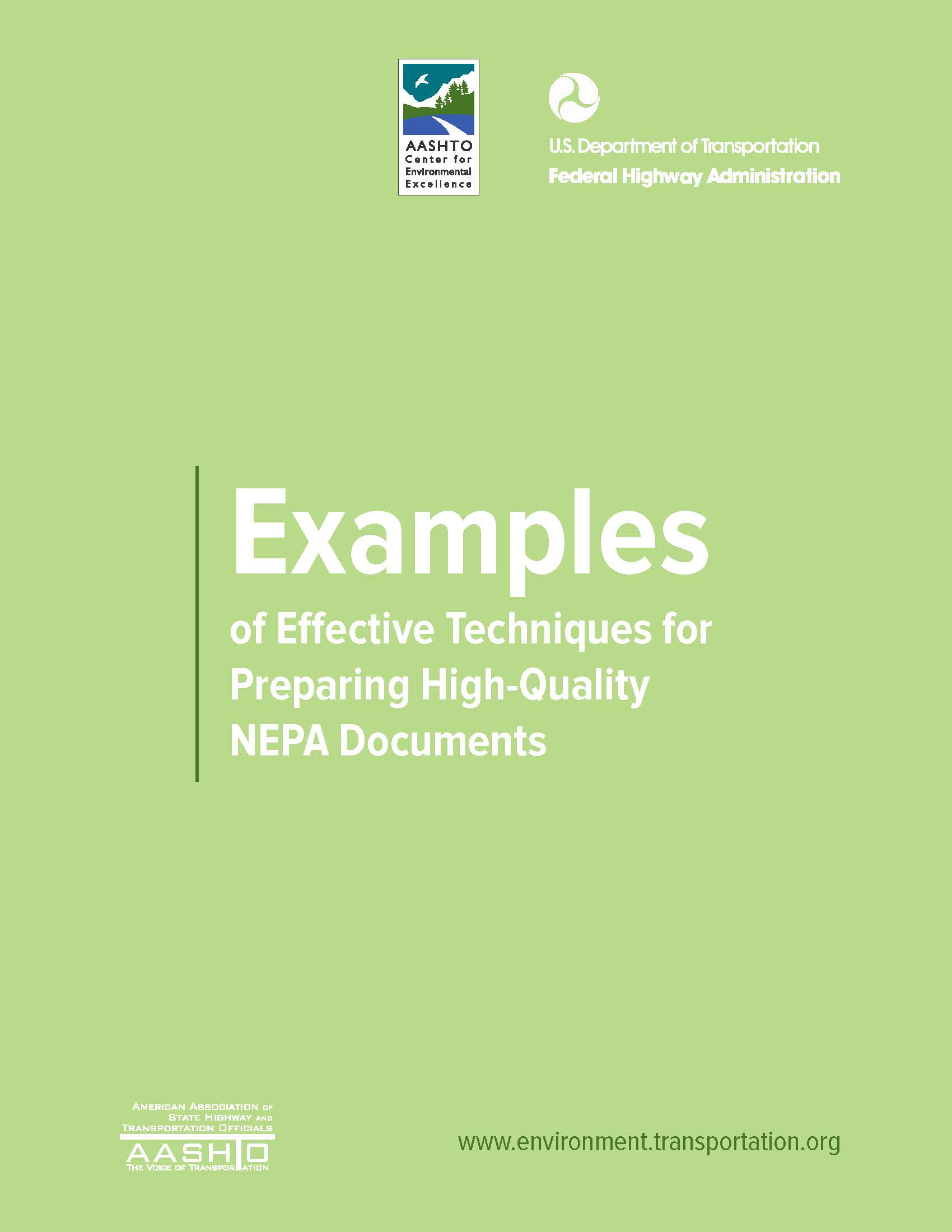December 15, 2016
Innovation of the Month: Improving Collaboration and Quality Environmental Documentation
Many transportation agencies are applying best practices to improve collaboration and quality environmental documentation and shorten the time needed for environmental approvals on construction projects.
The Mississippi Department of Transportation is finalizing an environmental policy manual and a local agency training course on transportation project reviews under Section 106 of the National Historic Preservation Act. The Mississippi DOT used State Transportation Innovation Council Incentive program funds to develop the manual and training materials.
New guidance developed by the Ohio Department of Transportation is aimed at improving the quality and streamlining the production of project feasibility studies and alternative evaluation reports. The Ohio DOT will use the guidance to produce reader-friendly documents that ensure efficient decision making.
For more best practices on environmental documentation, see Examples of Effective Techniques for Preparing High-Quality NEPA Documents, published by the American Association of State Highway and Transportation Officials.
For information and assistance on improving collaboration and quality environmental documentation, contact Carolyn Nelson or Kreig Larson of the Federal Highway Administration Office of Project Development and Environmental Review.
District Transportation Stakeholders Consider Railroad Agreements
In an effort to enhance transportation department and railroad cooperation, the District Department of Transportation and Federal Highway Administration partnered on a December 6 workshop on railroad agreements. The workshop covered how the District DOT, transit agencies and railroads can create a culture of partnership in advancing transportation projects in the Washington, D.C., area. Participants also discussed implementing railroad master agreements on project design, construction, right-of-way acquisition, operations and maintenance. Through Every Day Counts, FHWA is encouraging the use of model railroad agreements developed under the second Strategic Highway Research Program R16 project.
Traffic Flows on Michigan's Second Diverging Diamond Interchange
The Michigan Department of Transportation opened its second diverging diamond interchange to traffic on November 17. The project—on Cascade Road over I-96 in Grand Rapids—is expected to improve safety and operations. The agency incorporated lessons learned from a peer exchange into the Grand Rapids project and its first diverging diamond interchange, which opened in 2015 in Auburn Hills. The state used State Transportation Innovation Council Incentive program funds to organize the peer exchange and create a Diverging Diamond Interchange Informational Guide.
Michigan Conference Explores Community Connections
An FHWA presentation at the Michigan Transportation Bonanza on December 1 introduced the Every Day Counts effort on community connections, performance management approaches for planning transportation projects that can help reconnect communities. The conference brought together planning, transportation, engineering, education and health professionals to discuss community building for health and accessibility. The Michigan Association of Planning, Michigan Safe Routes to School and Michigan DOT partnered on the conference.
Washington Releases Corridor Capacity Report
The Washington State Department of Transportation published the 2016 Corridor Capacity Report, a statewide analysis of transportation system capacity and performance. Transit providers, regional planning organizations and other groups partnered with the Washington State DOT on the report, an example of the use of regional models of cooperation. The report includes an analysis of 86 one-way commute trips on nine highway corridors in five regions of the state. An online story map lets readers explore each corridor in a visual format using interactive tools.



